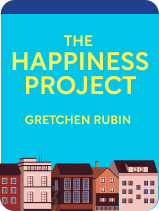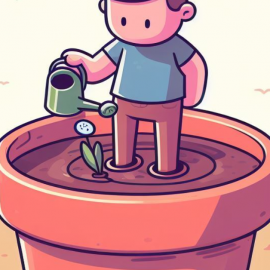

This article is an excerpt from the Shortform book guide to "The Happiness Project" by Gretchen Rubin. Shortform has the world's best summaries and analyses of books you should be reading.
Like this article? Sign up for a free trial here .
How do you find your passion in life? Does everyone has a passion? And if so, how does one discover it?
Everybody has a passion for something. According to Gretchen Rubin, the author of The Happiness Project, to find your passion, you must let go of the image of yourself you’re trying to project to others and consider what you actually like to do with your time.
In this article, we’ll discuss how to find your passion, and then explore different ways to grow in your passion.
A Quest for Passion
To find a passion to pursue, focus on the interests you currently enjoy. It might be helpful at this step to think about what you spent your time doing as a child. Or, you might think about how you spend your free time on the weekends or focus on what you’re thinking about when you daydream.
This exercise is helpful because it takes your focus away from who you wish you were and the image of yourself you’re trying to project to others. Instead, you consider who you actually are and how you actually like to spend your time.
Push Yourself
Once you’ve chosen a passion, take an all-in approach—this stops you from hemming and hawing about how to get into it. When you’re forced to leap right into working on your passion project you find that you can commit yourself to it without a ton of planning or preparation.
One way to go all-in on your passion this month is by setting an ambitious goal. For example, Rubin committed to writing a 50,000-word novel in one month. For you, this might look more like training for a race, committing to creating five album-ready photos each day, or completing your website by the end of the month. Having a clear goal in mind helps you engage more meaningfully with your everyday life in three ways.
- With a goal in mind, you can more easily put aside activities that don’t feed into your passion and don’t contribute to your happiness, such as watching television or scrolling on social media.
- Setting, working toward, and accomplishing a large goal not only boosts your confidence and excitement for your passion but also creates a significant feeling of growth—a key component to happiness.
- Frequently thinking in the context of your passion for a whole month can push you to view the world through a new, interesting lens. For example, a passion for painting might make you notice the colors around you more. A passion for food blogging may push you to try new restaurants and discover new neighborhoods.
Pursue Your Passion, in Your Own Way
As with leisure, making time for your passion takes some discipline—but the time commitment feels less oppressive when you consider that you determine how to pursue it. This sets a few key guidelines:
- You decide what counts as meaningful work toward your passion.
- You choose how other people fit into your passion and how you might work with them on it.
- You commit to cutting back on activities that don’t fall under the umbrella of “meaningful work.”
For example, Rubin thought that it would be useful to her passion of book creation if she dedicated more of her time to reading books. To accomplish this, she committed to letting herself read whatever she wanted—including children’s books or books she’d already read; engaging others with her passion by asking for recommendations and discussing books; and cutting back on aimless activities that were keeping her from spending time on her passion, such as watching television.
Don’t Focus on Results
Part of practicing your passion in a way that’s meaningful to you is letting go of the idea of a prestigious result. Removing the pressure of “success” helps you more fully immerse yourself in your passion in two ways.
- You feel free to experiment within your passion—perhaps you want to try a week of photographing only blue objects, or spend a day speed-drawing self-portraits. When you’re aiming for success or recognition, these activities can feel like an off-track waste of time and you might avoid them. But this “unproductive” work can be valuable. For example, Rubin kept journals of random thoughts, ideas, and quotations—eventually, several of her books were conceived from her “unproductive” note-taking.
- You get more enjoyment and happiness out of your passion when you don’t have the burden of expectation. When your expectations for yourself are high, failure can be discouraging. On the other hand, when your expectations are low (or ideally, nonexistent) you can embrace failure more readily and have fun with it.
Learn a New Way to Further Your Passion
Engage more fully with your passion is to find a new way to express it. This expands the horizons of your activity and naturally creates learning opportunities—keeping your passion fresh and interesting. There are a few ways to express your passion differently:
- Try a new medium: For example, a painter could experiment with surfaces other than canvas or make pigments from natural materials. A writer who mainly deals in poetry could write a series of short stories.
Learn a new technology: Rubin learned how to use several new websites to create bound books, turning several of her scattered ideas and photos into bound collections. If you’re a writer or photographer, perhaps you could start a blog or a website.

———End of Preview———
Like what you just read? Read the rest of the world's best book summary and analysis of Gretchen Rubin's "The Happiness Project" at Shortform .
Here's what you'll find in our full The Happiness Project summary :
- How to increase the overall happiness in your daily life
- Why changing everything won't bring you happiness
- How to create your own year-long happiness project






